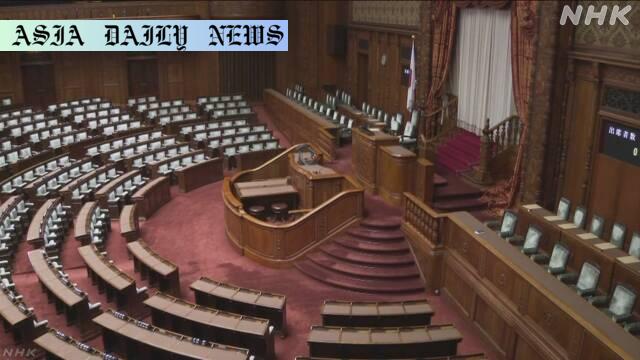Approval Rate: NHK poll shows Ishiba Cabinet’s approval rate dropped by 2%, highlighting challenges ahead for the Japanese leader.
- Approval rate of Ishiba Cabinet drops by 2 percentage points to 33%.
- Disapproval rate rises to 48%, with economic concerns over US tariffs.
- Japanese public shows limited optimism in Tokyo-Washington negotiations.

Ishiba Cabinet’s Approval Rating Declines
The latest NHK poll has revealed a decline in the approval rating of Japanese Prime Minister Ishiba Shigeru’s Cabinet, which now stands at 33%, reflecting a 2-point drop from the previous survey in April. Meanwhile, the disapproval rate has climbed by 3 points, reaching 48%. The poll was conducted over three days, engaging more than 1,200 respondents via telephone to measure public sentiments regarding the Cabinet’s performance and the broader economic issues Japan is facing.
Concerns Over US Tariff Measures
The poll further explored public opinion regarding the potential impact of US-imposed tariff measures on the Japanese economy. Of the respondents, 43% expressed significant concern, while 36% were somewhat concerned. In contrast, only 11% said they were not that concerned, and 5% stated they were not concerned at all. These results align with ongoing concerns about rising trade tensions between the United States and its key allies, including Japan. The tariffs have the potential to disrupt supply chains, increase production costs, and undermine economic stability.
Expectations of Tokyo-Washington Negotiations
As the Japanese government works to negotiate with the United States regarding these tariff measures, public expectations appear modest. According to the survey, only 11% of respondents have high expectations for Tokyo’s negotiations, while 36% hold moderate expectations. Conversely, a relatively high percentage, 32%, expressed minimal optimism, and 15% have no expectations at all. This data underscores the challenges faced by the Ishiba Cabinet in reassuring the public and mitigating economic stressors through diplomatic efforts.
Broader Implications for the Japanese Government
The declining approval numbers reflect mounting pressure on the Ishiba administration, which is tasked with not only managing economic relations with the US but also addressing domestic concerns. Critics argue that the Cabinet’s policies have not adequately shielded Japan’s economy from external vulnerabilities, such as trade wars and global economic slowdown. The disapproval rate of 48% indicates waning public confidence, suggesting that economic reforms and improved diplomatic efforts are essential for regaining public trust.
Conclusion
The NHK poll serves as a barometer of public sentiment, revealing growing dissatisfaction with the Ishiba Cabinet’s performance amidst economic uncertainties. The drop in the approval rate to 33%, coupled with high concern over US tariff measures, highlights urgent areas for improvement in government policies and public communication. As negotiations with Washington continue, it remains to be seen whether these efforts will yield tangible benefits or further erode confidence in the nation’s leadership.



Commentary
The Decline in Public Confidence
The latest NHK poll delivers a sobering reminder of the challenges facing Japanese Prime Minister Ishiba Shigeru and his Cabinet. With the approval rate falling to 33% and disapproval climbing to 48%, it’s clear that public dissatisfaction is growing. Such declines often act as a wake-up call for leaders to reassess their strategies and policies. For Ishiba, the need to communicate a clear vision and proactive measures is imperative, especially in uncertain economic times.
Economic Anxiety and US Trade Policies
One of the critical sources of public unease is the effect of US trade policies on the Japanese economy. The sentiment expressed in the poll—where a significant 43% of respondents are highly concerned—speaks volumes about the anxiety circulating among the populace. This reflects a broader recognition of how interconnected global trade policies directly impact local economies. The Ishiba Cabinet’s ability to navigate these external pressures will determine its long-term success.
Limited Optimism in Diplomatic Efforts
Interestingly, the lack of public optimism regarding Tokyo’s negotiations with Washington is striking. Only 11% of respondents have high hopes for these talks, signaling a pervasive skepticism about the government’s ability to secure beneficial outcomes. While this may stem from past disappointments, it also highlights the critical need for greater transparency and updates on ongoing negotiations. It is crucial to foster public confidence, particularly amidst rising trade tensions.
Path Forward for the Ishiba Cabinet
To regain public support, the Ishiba Cabinet must adopt a two-pronged approach. First, it needs to address immediate economic concerns by formulating policies that safeguard domestic industries and promote stability. Second, stronger diplomatic efforts are required to ensure fair trade terms with key international partners. These steps, coupled with clear communication, may help the government rebuild trust and strengthen its national standing during a critical juncture in Japan’s political and economic landscape.